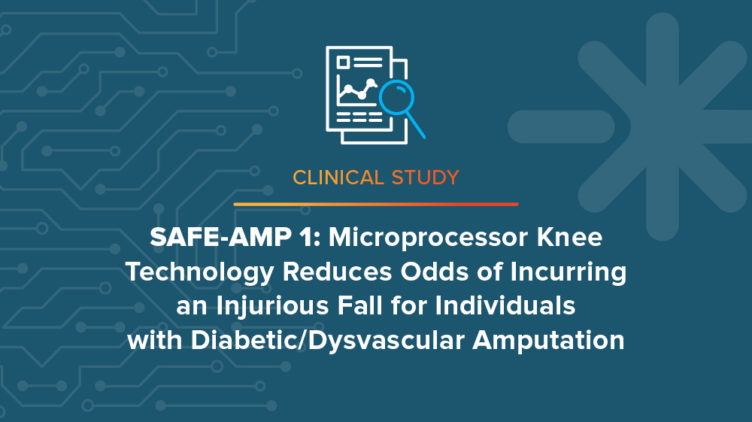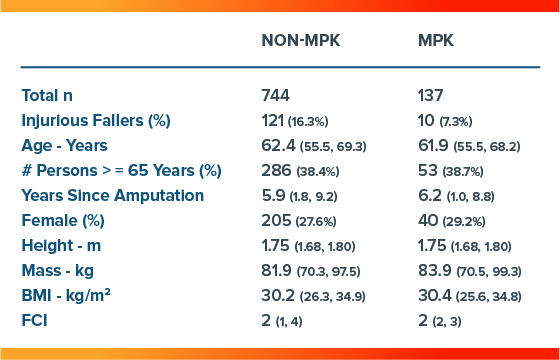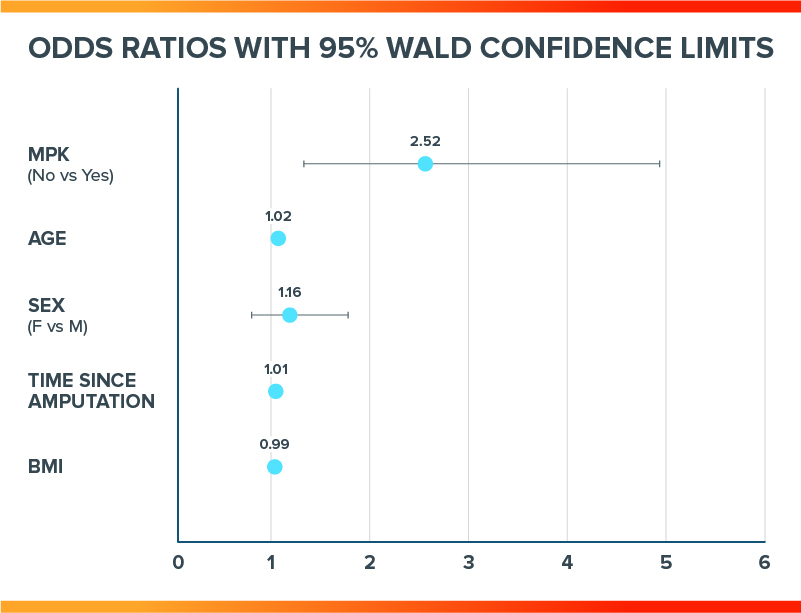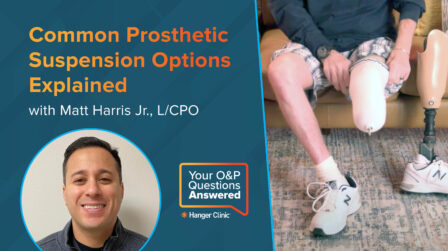SAFE-AMP 1: Microprocessor Knee Technology Reduces Odds of Incurring an Injurious Fall for Individuals with Diabetic/Dysvascular Amputation

Journal
Assistive Technology
Read Online
Download Now
Authors
Shane R. Wurdeman1,2, Taavy A. Miller1, 3, Phillip M. Stevens1,4, James H. Campbell1
- Department of Clinical and Scientific Affairs, Hanger Clinic, Austin, TX, USA
- Department of Biomechanics, University of Nebraska at Omaha, Omaha, NE, USA
- School of Public Health, University of North Carolina at Charlotte, Charlotte, NC, US
- School of Medicine, University of Utah, Salt Lake City, UT, USA
Background
Although diabetes and dysvascular disease are the most common cause of amputations in the United States, the majority of research has focused on traumatic amputations. Stability and Falls Evaluation after AMPutation (SAFE-AMP) 1 is the first of a series of studies that will examine the need for greater access to appropriate rehabilitation solutions for below and above-knee amputees in the diabetes community. SAFE-AMP 1, conducted by members of the Hanger Institute for Clinical Research and Education, sought to evaluate the impact of microprocessor-controlled knees (MPKs) on rates of injurious falls among diabetic and dysvascular people with above-knee amputations.
Objective
An above-the-knee amputation and diabetes/vascular disease are both risk factors for falls. Microprocessor knee technology may reduce falls in this population. The objective of this study was to determine the association of MPKs and reduced injurious falls.
Design
A retrospective analysis of injurious falls within a large, national outcomes database was conducted.
Patient Inclusion Criteria:
- Data collected from April 2016-May 2019
- Adults aged 18 years or older
- K3 ambulator
- Unilateral, transfemoral, or knee disarticulation amputation due to diabetes/vascular disease
Table 1: Patient Demographics (n=881)

Results
Results showed that 16.3% of non-MPK users experienced an injurious fall compared to 7.3% of MPK users (p=0.007).

Figure 1: Odds Ratios
While accounting for age, sex, time since amputation, and adjusted BMI, it was noted that individuals that are not provided an MPK have 2.52 times increased odds of sustaining an injurious fall over a 6-month period compared to their counterparts that receive an MPK.
Conclusion
- An MPK can decrease odds of an injurious fall by 250% for individuals with amputation due to diabetes or dysvascular disease.
- Balance impairments within the diabetes and dysvascular population puts them at higher risk for falls. Not providing a diabetic patient with an MPK increases their risk of falling, more than the risk associated with aging.
- There is a potential prescription bias based upon etiology. Within the US, the qualification for an MPK is an individual must be at a K3 ambulatory level notwithstanding a few third party payor exceptions. In this study, all 881 individuals qualified for an MPK, yet only 137 individuals were provided one.
- Further work is warranted to better understand how all possible orthotic and prosthetic care solutions can help improve clinical outcomes and quality of life for the diabetic patient population.
Meet the SAFE-AMP 1 Authors




James H. Campbell, PhD
SENIOR VICE PRESIDENT AND CHIEF CLINICAL OFFICER, PRESIDENT HANGER VENTURES
Latest Updates
Subscribe to stay up-to-date on our latest posts.



